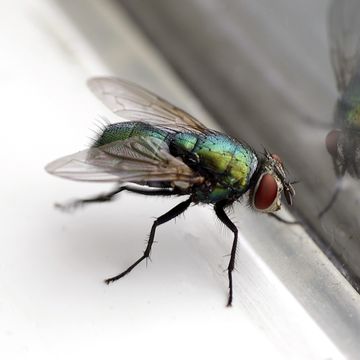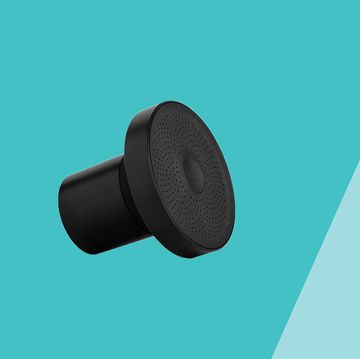It’s time for some trash talking. We know: Tossing something in the trash is so easy. It’s like magic, really. You throw out wrappers and cartons and cups and—poof!—every week the sanitation fairy makes it all go away. But the reality? "It hides in landfills," says Edward Humes, Pulitzer Prize-winning writer and author of the new book Garbology: Our Dirty Love Affair with Trash. "But it doesn't disappear. It drags down our economy, our environment, and our future."
The good news, says Humes, is that people can slash their trash accumulation by 30 to 50 percent without much effort at all. Use these sobering trash facts from Garbology to clean up your act.
1. You’re setting a 102-ton legacy for yourself. The average American creates more trash than anyone else on Earth, throwing away 7.1 pounds of garbage a day—that’s 102 tons in a lifetime.
Fix it: Are you really recycling everything you can? What about that raisin box? Or your old bra? Check out the surprising things you should be recycling.
2. There’s nothing refreshing about bottled water. Humes calls the bottled water industry the grandfather of wasteful industries, and here's why: On an average day, Americans toss 60 million water containers—that’s 694 a minute.
Fix it: Most bottled water is just overpriced tap water, says Humes. Opt for reusable stainless steel bottles, or install a water filter on your tap.
3. Landfills are full of food waste. In the United States, we throw away at least 28 billion pounds of food a year—that means 25 percent of the country's food supply winds up in a landfill.
Fix it: Spend a few minutes learning how to properly freeze or can extras in reusable containers. And instead of sending food waste down the garbage disposal or into the trashcan, compost it. It’s easier than you think.
4. Being disposable isn’t a good thing. It’s no secret that the world is facing an oil shortage. But what’s less known? We use 10 percent of the world's oil supply to make and ship disposable plastics—items that end up in the trash after just one use.
Fix it: Yep, those plastic utensils in your office kitchen are handy, but is it really that hard to bring a fork from home?
5. Trash is robbing your neighborhood blind. Communities spend more money dealing with trash than they fork out for schoolbooks, fire protection, libraries, and parks.
Fix it: Buy in bulk whenever possible for the environment and your wallet. "When you buy a small, 6-ounce bottle of shampoo, you're paying mostly for the container," says Humes.
6. The amount of carpeting waste will floor you. Garbology points out that Americans send 5.7 million tons of carpet to landfills annually.
Fix it: When it's time to ditch your carpet, recycle it. Many carpet sellers will take back old carpeting (just ask what they do with it), and places like CarpetRecovery.org will recycle carpeting, as well.
20 Minutes To A Clutter-Free House
7. You really didn’t need to print that. Americans waste 4.5 million tons of office paper a year.
Fix it: Stick a note on your computer asking if you really need to print something—chances are, you don’t. And when you do, make it double-sided.
8. Junk mail is junk—and a lot of it. It takes tons of energy to create and distribute the junk mail no one wants. In fact, Humes estimates you could heat 250,000 homes with the energy dedicated to making just one day's worth of junk mail.
Fix it: Put an end to the junk you get in the mail by going to CatalogChoice.org.
9. Kids have too much of a good thing. The United States is home to only 4% of the world's children—yet American parents buy and throw away 40% of the world's toys.
Fix it: This one’s easy: Buy less. And when you do purchase toys, look for second-hand ones—they’ll still be new to the recipient.
10. Enough already with the plastic bags. The average American uses 500 plastic shopping bags a year. These plastic bags are the second-most common type of trash on beaches.
Fix it: Make reusable shopping and produce bags the norm in your household. Keep one in your purse, and stash some in your car—just be sure to wash them once a week to keep them clean.
Also see: Eco Friendly Pest Control, 13 Facts About Swine Flu, 19 Bizarre Home Remedies That Work

Leah Zerbe is an online editor for Rodale News, where she covers the food system and environmental health issues. Prior to working at Rodale, she worked for NBCPhiladelphia.com and the Philadelphia Daily News. She and her husband run Potter's Farm, a sustainable farm in Pennsylvania.












